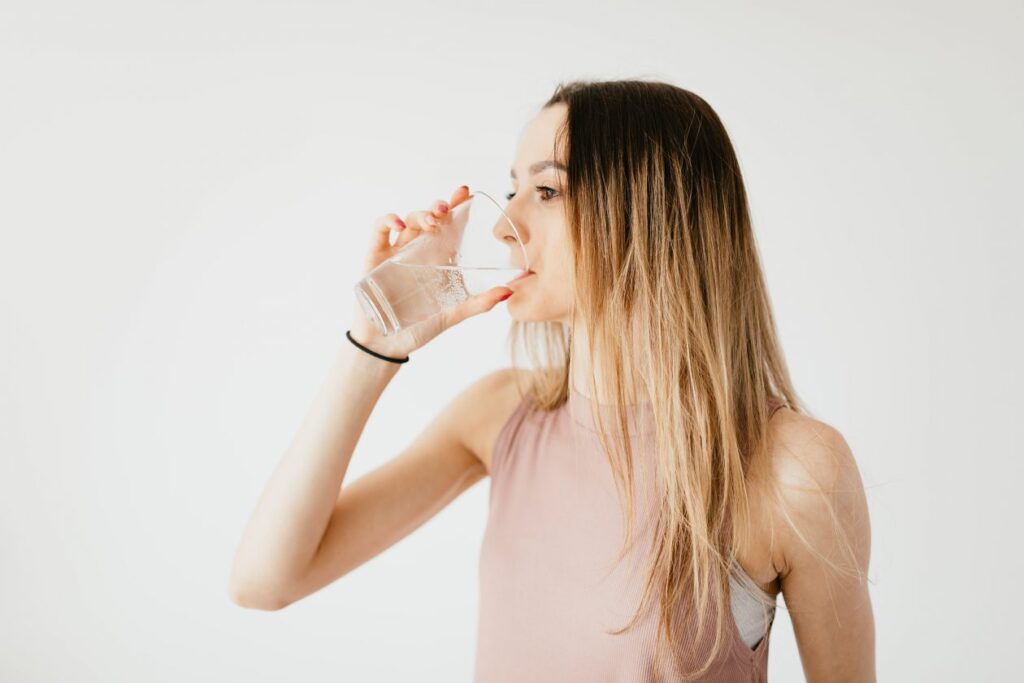How Can You Optimize Your Physical Health
 / Discover more like this here: https://stylevitally.com/how-can-you-optimize-your-physical-health/?feed_id=6421&_unique_id=6630f29569ac1&utm_source=&utm_medium=ycfemb83&utm_campaign=FS%20Poster
/ Discover more like this here: https://stylevitally.com/how-can-you-optimize-your-physical-health/?feed_id=6421&_unique_id=6630f29569ac1&utm_source=&utm_medium=ycfemb83&utm_campaign=FS%20Poster
Introduction
How Can You Optimize Your Physical Health? Physical health is a crucial element of overall well-being and a significant factor in determining our quality of life. Our physical health affects our capacity to carry out daily activities and our mental health, interpersonal relationships, and capacity to enjoy life fully.
Unfortunately, many of us struggle to prioritize our physical health and frequently disregard the significance of caring for our bodies in today's fast-paced and sedentary world. As a result, we might suffer from persistent health issues, low energy, and decreased general happiness.
The good news is that maintaining physical well-being can be both doable and enjoyable. We can significantly enhance our physical health and raise our well-being by implementing small, long-lasting changes to our daily routines. This can be as easy as increasing our daily physical activity, eating a healthy diet, or lowering our stress levels.
This blog aims to give you ten quick, easy, and valuable tips for improving your physical health. These pointers will assist you in taking the first step toward becoming a healthier, happier version of yourself, regardless of your level of fitness experience. So let's get started!
Tip 1: Get Adequate Sleep

Even though getting enough sleep is crucial for maintaining physical health, many of us don't give it the attention it deserves. Numerous health issues, including weakened immune systems, weight gain, and elevated stress levels, can be brought on by sleep deprivation. On the other hand, studies have shown that getting enough sleep helps the immune system, mood, and energy levels.
Aim for 7-9 hours of high-quality sleep each night to get the most out of your sleep. Establish a regular bedtime and wake-up time, abstain from caffeine and other stimulants in the hours before bed, and develop a relaxing bedtime routine to accomplish this. You might consider buying cozy mattresses and pillows for the best possible sleep.
Additionally, think about establishing a tranquil and relaxing sleeping environment. This can be accomplished by using fewer electronic devices, buying blackout curtains, or putting an essential oil diffuser in your room.
Finally, getting enough sleep is a straightforward yet effective way to enhance physical health. By prioritizing sleep, you can have more energy, a robust immune system, and a better mood. So prioritize your sleep and start reaping the rewards of a rested body immediately!
Tip 2: Eat a Healthy Diet

One of the most crucial things you can do for your physical health is to eat a balanced and nutritious diet. A healthy diet can increase your energy levels, assist in maintaining a healthy weight, and lower your risk of developing chronic health conditions like type 2 diabetes and heart disease.
Eat nutrient-dense foods like fruits, vegetables, whole grains, lean protein, and healthy fats to optimize your diet. It would be best to try to consume fewer processed foods, foods high in fat and added sugars.
Planning your meals is one way to ensure you're following a healthy diet. This can assist you in preventing poor impulse choices and ensure you have a variety of healthy foods on hand. You can also experiment with new recipes and ingredients to find healthy foods you like.
Increased home cooking is a fantastic way to improve your diet. This allows you to manage the ingredients and serving sizes and can be creative and enjoyable.
In summary, maintaining a healthy diet is crucial for having the best possible physical health. You can significantly enhance your physical health and raise your well-being by making small dietary changes, such as adding more foods high in nutrients and cooking more meals at home. So start making nutritional changes immediately and watch how your health and happiness will be much better!
Tip 3: Stay Hydrated

The key to maintaining good physical health is staying hydrated, but most don't get enough water throughout the day. Dehydration can cause fatigue, headaches, and a decline in physical performance. On the other hand, it has been demonstrated that maintaining hydration enhances mood, focus, and general health.
Aim to consume at least eight glasses of water daily to ensure proper hydration. You may need to hydrate yourself even more if you exercise. You can also include other hydrating foods and drinks, like coconut water, herbal teas, and fruits and vegetables with a high water content.
Carrying a water bottle with you all day is a great way to ensure you stay hydrated. This will help you stay hydrated and remind you to do so wherever you are. You can add lemon or mint to your water for a refreshing twist.
In conclusion, maintaining proper hydration is a quick and easy way to enhance physical health. You can have more energy, a better mood, and better physical performance by ensuring you drink enough water each day. So, drink and observe how it can improve your health and well-being!
Tip 4: Exercise Regularly

Exercise can improve your overall well-being and is necessary for maintaining good physical health. Regular exercise boosts mood, promotes weight management, increases muscle strength and flexibility, and improves cardiovascular health.
Aim to engage in at least 30 minutes of moderate physical activity daily to get the most out of your exercise regimen. This can include exercises like cycling, swimming, or walking. You can also incorporate strength training exercises like weightlifting to increase muscular strength and general fitness.
Making exercise a consistent part of your lifestyle requires finding an exercise program you enjoy. This can involve learning a new sport, attending a fitness class, or going outside. Another great way to stay inspired and on track is to find a workout partner or join a fitness group.
Your mental health can also benefit from including physical activity in your daily routine. Exercise has improved mood, stress levels, and overall well-being.
In conclusion, consistent physical activity is crucial for maintaining good physical health. Making exercise a daily habit can help you feel better physically and mentally. It can also improve your cardiovascular health and muscle strength. So start exercising in your daily routine immediately to enjoy all the rewards of leading a healthy, active lifestyle!
Tip 5: Manage Stress
Although stress is a normal part of life, it can harm physical and mental health when it persists for an extended period. Chronic stress can cause several health issues, including fatigue, headaches, and high blood pressure.
Establishing healthy coping strategies and learning stress management techniques to reduce stress and maximize performance is critical.
Exercise, meditation, deep breathing exercises, and journaling are a few examples. Spending time with loved ones and participating in hobbies can both help to lower stress.
Additionally, it's critical to recognize the sources of stress in your life and develop strategies for reducing or managing them. This can involve setting priorities for your workload, assigning tasks, and declining engagements that are not urgent.
Stress levels can be decreased by incorporating self-care practices like getting enough sleep and eating a balanced diet. This can be as easy as taking a soothing bath or walking outdoors.
In conclusion, stress management is crucial for achieving optimum physical and mental health. You can lessen chronic stress and experience improved physical and mental health by finding healthy coping mechanisms, learning stress management techniques, and incorporating self-care activities into your daily routine. So begin managing your stress today and reap the many rewards of living a healthy, stress-free life!
Tip 6: Stretch and Do Foam Rolling

Stretching and foam rolling are excellent ways to increase flexibility, lessen muscle soreness, and prevent injuries. Regular stretching can increase flexibility, ease muscle tension, and improve physical performance. On the other hand, foam rolling can speed up recovery by reducing muscle pain and helping to loosen up tight muscles.
Making stretching and foam rolling a regular part of your routine is crucial for maximizing their therapeutic effects. Stretching should be a part of both your warm-up and cool-down routines. It would be best to try to foam roll after working out. You can extend or foam roll to ease tension and increase flexibility throughout the day.
It's essential to keep in mind to stretch gently and to avoid overextending yourself because doing so can lead to injury. As your flexibility increases, start with gentle stretches and gradually increase the intensity. Focus on rolling out specific muscle groups when foam rolling, and be gentle with yourself.
In conclusion, foam rolling and stretching are efficient ways to enhance physical health and avoid injuries. By incorporating these exercises into your daily routine, you can experience improved physical performance, decreased muscle soreness, and increased flexibility. So immediately add foam rolling and stretching to your daily routine to experience their benefits on your physical health and well-being.
Tip 7: Take Breaks and Move Regularly
Long periods of sitting can be bad for your physical health, increasing your risk of obesity, heart disease, and bad posture. Regular breaks and moving throughout the day are critical to maintaining physical health.
This can involve stretching at your desk or taking a brief office stroll. Consider using a standing desk to alternate between sitting and standing, or set the alarm to remind you to get up and move around every hour.
Physical health can also be enhanced by including physical activity in your daily routine, such as walking during lunch. This can be a fantastic way to get fresh air, decompress, and increase energy.
Furthermore, even minor adjustments to your daily routine, like choosing the stairs over the elevator, can significantly impact your physical health.
In conclusion, regular physical activity and breaks are crucial for maintaining good physical health. You can improve your physical health, lower the risks associated with prolonged sitting, increase your energy levels, and feel better about yourself by making minor adjustments to your daily routine, adding physical activity to your day, and taking regular breaks. So begin implementing these small changes immediately and experience the improvement in your physical health that results!
Tip 8: Get Regular Checkups
Having routine checkups is crucial for maintaining physical health. Regular checkups can aid in the early detection of potential health issues, enabling prompt treatment and better health outcomes.
A doctor can evaluate your general health, including your physical and mental well-being, during a checkup and offer suggestions for preserving optimal health. Additionally, they can perform checks for potential health issues and conditions like high blood pressure or high cholesterol and offer advice on managing them.
Regular screenings, such as mammograms and colonoscopies, should be obtained in addition to regular doctor visits to identify potential health issues. Early detection of diseases, when they are frequently most treatable, is made possible by these screenings.
Overall, routine screenings and checkups are crucial to maintaining physical health at its best. You can stay informed about your health, identify potential health issues early, and take proactive measures to maintain optimal physical health by staying on top of your health and getting regular checkups.
Plan regular checkups and routine screenings to optimize your physical health. Maintaining optimal physical health and spotting potential health issues early on are made possible by staying informed about your health. This results in better health outcomes and overall well-being.
Tip 9: Reduce Alcohol and Nicotine Intake
Improving physical health requires reducing the consumption of alcohol and nicotine. Both alcohol and nicotine have harmful effects on the body and can raise the risk of developing several illnesses.
Even in moderation, drinking alcohol can raise your risk of developing liver disease, certain types of cancer, and high blood pressure. Additionally, it may interfere with sleep, resulting in fatigue and a general decline in well-being.
Like other addictive substances, nicotine is found in tobacco products. It has several detrimental effects on physical health, including a higher risk of heart disease, stroke, and lung cancer. Additionally, it may affect overall energy levels, resulting in decreased physical performance.
Reducing alcohol and nicotine consumption, or quitting altogether if possible, is crucial for achieving the best possible physical health. If you struggle with alcohol or nicotine addiction, you might want to seek help from a physician, support group, or rehab facility.
In conclusion, reducing alcohol and tobacco use is essential for improving physical health. You can lower the risks associated with alcohol and nicotine use and improve your physical health, resulting in more energy, better physical performance, and a general sense of well-being. So begin implementing these changes immediately and feel the improvements in your physical health that result!
Tip 10: Get Outdoors and Soak Up Some Sun

Getting outside and enjoying the sunshine is crucial for enhancing physical health. Numerous health advantages include increased vitamin D levels, lowered stress levels, and improved mental well-being outdoors and in the sun.
The "sunshine vitamin," vitamin D, is crucial for maintaining healthy bones and boosting the immune system. Since sunlight triggers the production of vitamin D in our bodies, it's critical to get sun exposure each day. While the sun is strongest between 10 a.m. and 4 p.m., practicing sun safety and limiting exposure is crucial.
Time spent outdoors has been shown to enhance mental health, lessen stress, boost general happiness, and raise vitamin D levels. Physical and mental health can benefit significantly from sunbathing, strolling through a park, or simply sitting outside in the open air.
In conclusion, spending time outside in the sun is a quick and easy way to improve physical health. You can enhance your general well-being and live a happier, healthier life by spending time in nature, raising vitamin D levels, and reducing stress. So, as part of your daily plan to improve physical health, go outside and soak up some sun!
Conclusion
Finally, improving your physical health is crucial for your overall well-being. By incorporating these ten straightforward and practical tips into your daily schedule, you'll be on your way to a healthier, happier you. To maintain your physical health, it's essential to make small, sustainable changes over time rather than attempting to change your way of life at once thoroughly. Eating a balanced diet, exercising frequently, managing your stress, or just spending time in nature—each of these suggestions can significantly enhance your physical health.
So please don't put it off any longer; start implementing these tips into your daily schedule immediately to start on the path to a healthier, happier you! No matter your life stage, it's never too late to start caring for your physical health.
Reference
Fletcher, Jenna. 2019. “Why Sleep Is Essential for Health.” Medicalnewstoday.com. Medical News Today. May 31, 2019. https://www.medicalnewstoday.com/articles/325353.
Health. 2014. “Food Variety and a Healthy Diet.” Vic.gov.au. 2014. https://www.betterhealth.vic.gov.au/health/healthyliving/healthy-eating.
CDC. 2023. “Benefits of Physical Activity .” Centers for Disease Control and Prevention. August 1, 2023. https://www.cdc.gov/physicalactivity/basics/pa-health/index.htm.
“20131 Stress.” 2018. CAMH. 2018. https://www.camh.ca/en/health-info/mental-illness-and-addiction-index/stress.
Su, Hsuan, Nai-Jen Chang, Wen-Lan Wu, Lan-Yuen Guo, and I-Hua Chu. 2017. “Acute Effects of Foam Rolling, Static Stretching, and Dynamic Stretching during Warm-Ups on Muscular Flexibility and Strength in Young Adults.” Journal of Sport Rehabilitation 26 (6): 469–77. https://doi.org/10.1123/jsr.2016-0102.
Health. 2020. “The Dangers of Sitting: Why Sitting Is the New Smoking.” Vic.gov.au. 2020. https://www.betterhealth.vic.gov.au/health/healthyliving/the-dangers-of-sitting.
Palmer, M., Sutherland, J., Barnard, S., Wynne, A., Rezel, E., Doel, A., Grigsby-Duffy, L., Edwards, S., Russell, S., Hotopf, E., Perel, P., & Free, C. (2018). The effectiveness of smoking cessation, physical activity/diet and alcohol reduction interventions delivered by mobile phones for the prevention of non-communicable diseases: A systematic review of randomised controlled trials. PLoS ONE, 13(1). https://doi.org/10.1371/journal.pone.0189801
https://www.facebook.com/WebMD. 2023. “Health Benefits of Getting Outside.” WebMD. 2023. https://www.webmd.com/balance/ss/slideshow-health-benefits-nature.
https://stylevitally.com/how-can-you-optimize-your-physical-health/?feed_id=6421&_unique_id=6630f29569ac1&utm_source=&utm_medium=ycfemb83&utm_campaign=FS%20Poster
Comments
Post a Comment